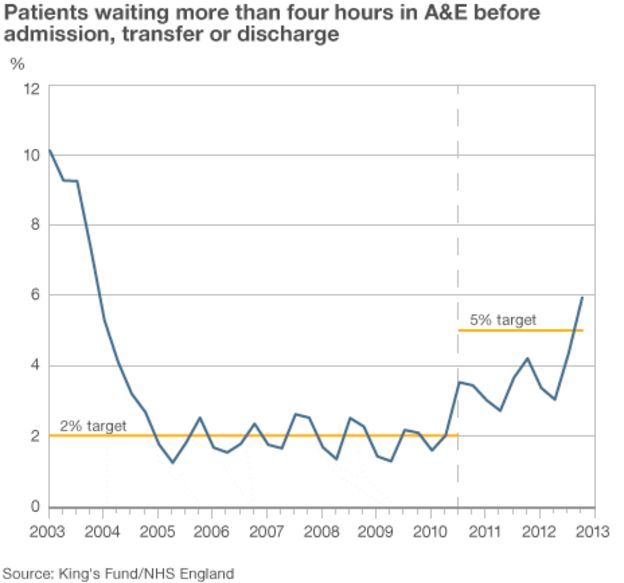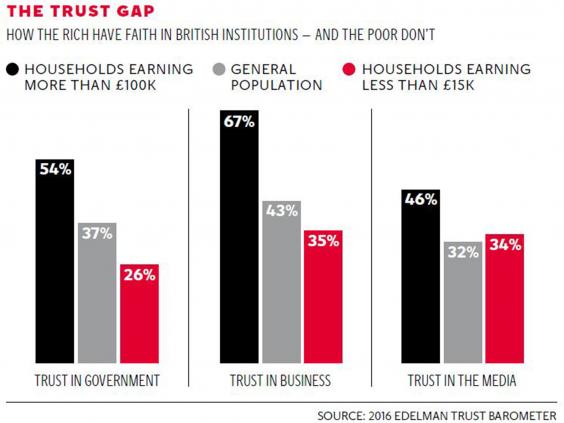On June 8 (this Thursday), Britain has a general election. I care deeply about British politics–I’m doing my PhD at Cambridge. But more importantly, Theresa May’s government has managed the country’s economy and public services with stunning fecklessness, and I couldn’t live with myself if I didn’t do my part to point this out.
Let me tell you the story of what happened in Britain and how the Tories made everything much, much worse.
The 2008 economic crisis slammed Britain particularly hard because the UK has a big financial sector–its economy suffers heavily from “financialization”, a condition in which a lot of money is tied up in finance. In most cases, this means that not enough is flowing through the wider economy (unless you’re Luxembourg and don’t really have a wider economy). Indeed, this is a bigger problem in the UK than it is in the US:

This meant that Gordon Brown’s Labour government had to bailout a lot of banks and do a lot of economic stimulus to rescue Britain’s economy. This required it to run up the UK’s debts:

But it also prevented the UK economy from cratering, pulling it out of recession:

The spending also wasn’t as massive as people remember–British government spending was much higher during the Thatcher years:

But British voters were in no mood to credit the recovery to Labour–instead, they blamed Labour for the recession, the bailouts, and the size of the public debt. This made no sense, because the economic crisis started in the United States because of a US housing bubble facilitated by Clinton-era deregulation of the US financial sector. But as political scientists know, the public tends to blame the sitting government for economic phenomena regardless of whether or not government policy is really responsible.
So in 2010, the British elect a coalition government led by the Conservative Party’s David Cameron. Cameron immediately begins doing austerity–he cuts government spending to in an effort to reduce the debt. The trouble is that when government spending is reduced, this cuts the legs out from under economic demand. Cameron cut benefits, salaries, and reduced subcontracts putting less money into consumers’ pockets. In the early years of the Tory government, this caused British growth to lag:

This experience was not unique to the UK–it quickly became clear that austerity negatively correlated with growth throughout the European Union:

The International Monetary Fund (IMF) subsequently came out with a paper stating that the multiplier (the effect of government spending on economic growth) had been massively underestimated. Then it got worse–the IMF revealed that because the multiplier is so large, austerity shrinks the economy enough to cancel out debt relief. Let me be clear–austerity reduces growth so much that it undercuts government revenue and prevents governments from shrinking their deficits. I wrote about this at the time. It was and remains shockingly clear evidence that austerity was and is failing even to reduce debt and deficits. The UK is in a significantly worse fiscal position than it was in 2010:
As time has gone on, the austerity policies have continued:
The Cameron and May governments have put up historically poor GDP growth figures, the worst since Callaghan:

The lack of government investment in the economy, research, and infrastructure has allowed productivity growth to grind to a halt:

With stagnant productivity, it is incredibly difficult for real wages to grow without generating inflation. Britain has endured a lost decade of wage growth–inflation-adjusted wages are lower now than they were in 2006:

By contrast, the Blair/Brown governments were much stronger on wages:

Labour is promising much more investment in infrastructure and research. This will help productivity and wages grow again:


The Tory cuts have also strangled the NHS:

This has come even as the percent of the UK population over age 65 has increased, meaning that spending has fallen even as the need for healthcare has risen:

This has caused the number of patients forced to wait four hours or more at the A&E to triple:

The number of patients stuck waiting for surgeries has increased massively:

Uncompetitive compensation and working conditions have led to shortages in doctors and nurses:


Labour has promised to reverse the cuts to the NHS and restore the service to 2010 spending levels:

Labour promises to pay for its spending with tax increases which only hit the top 5% of earners and which do not raise British rates above normal rich country levels:


Theresa May constantly talks about “strong and stable leadership”. There’s nothing strong and stable about allowing the NHS, infrastructure, productivity, and wages to stagnate and deteriorate. There’s nothing strong and stable about calling an election you promised you wouldn’t call precisely because it would lead to “instability”. There’s nothing strong and stable about abandoning crucial questions which deeply concern the national interest to haphazard referendums in which the public is flooded with incorrect and incomplete information. No government since Callaghan’s has held referendums so often, and the Tory referendums have been high stakes–they gambled the electoral system, Scottish independence, and EU membership instead of making potentially unpopular political decisions:

The resort to referendums undermines parliamentary sovereignty and makes the British government weak. It constantly creates uncertainty about Britain’s economic future and damages confidence in British institutions, especially when major institutions are accused of feeding the public propaganda. A majority of the British people don’t trust the government, businesses, or the media:

In 2015, Ed Miliband’s Labour Party was still promising to follow the Tories on austerity, offering the same policies at a gentler pace. But today the consensus around austerity has been shattered. The Labour Party is now ready and willing to reverse the mistaken policies of the last seven years. The polls have tightened up, and there may be a genuine opportunity for Labour–perhaps in conjunction with other progressive parties–to surprise everyone. But for this to happen the British people need to get the facts about what the Tories have done to their country.
This post is the conclusion of a series I’ve been doing on the 2017 UK election:
- Don’t Vote for the Tories: They’re Clueless on Wages
- Don’t Vote for the Tories: They’re Destroying the NHS
- Don’t Vote for the Tories: They Provide Weak, Unstable Leadership
- Don’t Vote for the Tories: They’re Strangling the Unions for No Good Reason
- Don’t Vote for the Tories: Labour Offers a Serious Alternative
- Don’t Vote for the Tories: Their Manifesto Can’t Compete With Labour’s

